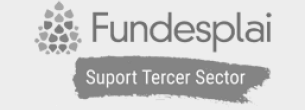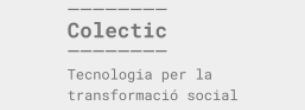Living with Diversity: For a Politics of Hope in Europe
Comparteix
An Open Letter to Europe from a group of Concerned Citizens.
Climate change is a threat to all, a danger with potentially devastating consequences on world survival, and yet the world remains in denial, hoping for the best. We run the risk of waking up too late, and on a scorched earth.
A quietly brewing pathology of xenophobia, intolerance and fear of difference is a problem of a similar order. If unchecked, it will poison the air breathed by all who live in Europe, and not just those at the receiving end. Yet the call for other ways of living in a plural and changing world is muffled in the present climate of global recession, national retrenchment and cultural clash. Is the risk of waking up in a world of barricades, perpetual war and resentment a risk worth taking? On behalf of what? To preserve what? To which end?
This risk is spreading far and deep in Europe. Aggressive political demagoguery is on the march again, drumming up hatred against minorities, democratic values, equal rights, and the cosmopolitan society; thriving on suspicion of the stranger and the non-mainstream, unemployment and social disaffection. This turn in Europe is fuelled by public worries over security in an unstable and uncertain world, spun by fundamentalist and xenophobic movements, and increasingly embraced by mainstream political forces to appease national majorities in these volatile times.
We can speak of the ‘Berlusconisation’ of Europe, a happy-clappy populism mixing feel-good consumerism, ethno-nationalist sentiment and shallow hedonism with lamentable actions against immigrants, minorities and the vulnerable in general. In the name of containing global terrorism and unwanted intrusions (from flu to financial shocks and supposedly incompatible religions and cultures), a new everyday culture is consolidating. It breeds on endless talk of greedy asylum seekers, disloyal and seditious immigrants, would-be Muslim terrorists, return to founding principles and parochial values. Europe is portrayed as ailing, under siege, swamped, crushed by difference and diversity, cut off from its past glories, handed over to the barbarians. And daily, new humans and non-humans are being thrown into the brew: non-conformists, pacifists, libertarians, passive protesters, crooks, criminals and disaffected youths, along with viruses, germs, diseases, hazards and risks of various composition and origin.
A new mentality of catastrophe management is emerging, centred on the containment or elimination of particular bodies through extensive surveillance, border controls, hierarchies of rights, anticipatory exercises, daily watchfulness, finger pointing, naming and shaming.
A Critical Moment for Europe
The enormity of the change sweeping through Europe needs to be recognised with clarity. A hardly won legacy of openness, inclusion and engagement towards the unfamiliar and unexpected is being replaced by a ‘catastrophe’ approach based on exclusion and vilification of anything that threatens the customary way of life. Both approaches to change are present in Europe, one looking to the future with courage, curiosity and a desire to evolve, and the other with fear, dread and an anxiety to preserve.
The inclusive approach is rooted in the principle of provision for an expanding spectrum of social actors at home and abroad, typically through collective negotiation, social insurance, empowerment and education, social cohesion and inclusion, dialogue and democratic engagement. It brings the outside and the foreign into the inside. Aspects of the post-war European social model, Europe’s long Humanist and Enlightenment legacy, and late-20th century recognition of gender, racial, sexual and post-colonial equality by the EU and many member states can be seen as heirs of this tradition.
The catastrophe approach is rooted in the principle of mitigation against hazard and risk through elaborate military-like preparations including disaster planning, warnings of Armageddon, public fear, feral surveillance, clampdown, the security state, restriction of civil liberties, and violent oppression of dissent, difference and the foreign. The outside must be kept at bay, the enemy must be named, the primitive must be tamed, a cleansing must occur, and tough and punitive measures must be taken in the name of social and cultural preservation, collective security and well-being.
This is how Europe justified the exploits of Empire and colony, its differences with the Orient and Islam, its division of the world into superior and inferior races and peoples conveniently colour coded, the brutal suppression of Jews, gypsies, dissidents, non-conformists, workers and peasants by different totalitarian regimes. This is how contemporary ‘emergency’ measures after 9/11, bent on targeting would-be terrorists, unfit citizens and social outcasts through loose proxies such as physical appearance, religious belief, cultural practices, race and ethnicity, social and economic status, can be linked to a dark European legacy of collective hysteria based on the demonization of particular types of easy to attack bodies.
This is a politics of hate that targets the wrong culprits, that fans resentment among those pursued, that does not get to the systemic root of the risks and hazards identified, that preys on fear and anxiety, and that will turn societies onto themselves. Minorities and majorities will turn against each other and indeed also among themselves. It is not long before a politics of hate, having exhausted the list of easily identifiable scapegoats, creates new divisions and disagreements in order to sustain itself. It is not long before a politics of fear and resentment that tries to shut out an irreducibly plural and porous world will incapacitate Europe, as the means to engage, to look ahead, to cultivate an ethic of care, empathy or curiosity are lost, as the ability to step into the unknown or the uncertain is weakened. All that is left is the certitude of a past never to be recovered.
Facing the Future Together
Europe is now home to millions of people from non-European backgrounds, many religious and cultural dispositions, networks of affiliation that stretch right across the globe. Europe has become multiethnic, multicultural and multispatial. It is as much a site of longings rooted in myths of origin and tradition – regional, national and European - as it is a site of trans-national and trans-European identities and attachments. Europe is becoming Chinese, Indian, Romany, Albanian, French and Italian, Christian, Islamic, Buddhist, New Age, American, consumerist, ecological, ascetic, local and cosmopolitan. Europe is a place of plural and hybrid composition, drawing on varied geographies of cultural formation. In such a Europe it makes no sense to close the borders, to play the game of good insiders and bad outsiders, to defend ethnic and cultural purity, to demonise everything alien, to declare the end of secularism.
There is no denying that these are turbulent times, riddled with large and often unforeseen risks and hazards thrown up by the entanglements of an unregulated and interdependent world. Governance has become an imprecise science, a case of trial and error, making the best of an imperfect and fully unknowable world. Risks quickly multiply, mutate, cross borders, and this no doubt worries governments and publics used to certitude and the idea of a secure future. Hazards, especially natural and health hazards are becoming all-embracing. But uncertainty, escalation and imprecision – all requiring the need to act in new ways - should neither be read as unavoidable catastrophes, nor, most importantly, as problems that can be resolved through a politics of retrenchment, generalised fear and militarisation; a politics of harming some bodies for the safety of others.
Europe has to find a way of tackling hazard, risk and uncertainty by harnessing rather than rejecting diversity and difference; by inventing new solidarities rather than craving for an uncontaminated future; by cultivating an ethos of hope, shared ground and common purpose rather than one of hate and division; by accepting that acting in an uncertain world requires the wit, imagination and effort of all stakeholders rather than the designs and impositions of so-called experts, soothsayers and tough leaders; by realising that the negotiation of complexity and interdependence – the world as it has become – requires a stance of pragmatic experimentalism, continuous learning and negotiation, rather than a stance of heroic certitude and unbending projection.
A start on this difficult but necessary journey to rethink how best to live in a plural and uncertain world is to jettison a culture of emergency management through obsessive surveillance and control. What is needed, instead, is to clarify why democracy, inclusion, empowerment, fairness and justice for the many and not only the few – in Europe and the world at large – is a precondition for dealing with uncertainty and change.
New work is required to show with conviction and evidence that gender, class, racial and sexual equality are a good thing, that access for all to the means of well-being in a society releases new capabilities and reduces envy and resentment, that full-blown democracy involving universal rights, representation, popular participation and public scrutiny spreads responsibility and checks power abuses, that investing in the collective infrastructure shared by all and in future sustainability reduces fear and anxiety along with underpinning hope and a sense of the shared turf, that widespread economic opportunity, parity and security can reduce conflict and disaffection. These cannot remain empty phrases, but must form part of a new and passionately felt politics of social inclusion and justice that is not just whispered from the sidelines, but can demonstrate that there are significant gains to be made by majorities and minorities, citizens and residents, and above all, society as a whole.
All this said, a simple return to the experience of the welfare state is far from adequate. Times have changed, and past effort was not without its problems. For example, only too frequently, states and elites rolled out giant programmes in the name of equality that fell far short, while majorities continued to discriminate against minorities, outsiders, and the vulnerable in general under the guise of universalism and collectivism.
Towards a New Politics of Hope
The challenge of bridging similarity and difference, the particular and the common, the familiar and the strange thus remains an unresolved challenge, as does the need to show how such bridging is the road to peace, progress and understanding in a turbulent world. These are difficult issues that need to be addressed through collective debate over the concerns at stake, through public ownership of and conviction in the proposals put forward. Otherwise the proposals – no matter how sophisticated or persuasive – will be rejected as impositions.
A start can be made, however, by indicating the kind of ethos we have in mind. It has three components. First, it is an ethos of hope not hate, trust not suspicion, dialogue not condemnation, diplomacy not attack, courage not cowardice. Secondly, it is an ethos of finding vision in the dark through many eyes and torches held by many hands, united by common concerns and belief in the benefits that come from unity, but also the knowledge that the way can never be fully illuminated, is full of pit holes and dangers but also negotiable. Thirdly, therefore, it is an ethos of studied optimism, pragmatic learning, trial and error, but clear about the principles of the open society that cannot be violated. This includes pressing for the complete dismantlement of the catastrophe mentality and its infrastructure.
One imperative is to develop a new language of and strong feelings for the shared commons, a public consensus that to sacrifice the commons implies to sacrifice the future as well as any possibility of reconciling difference.
The problems of race, ethnicity and culture that have come so much to centre stage in the politics of catastrophe management need to be put back in place by making space for a wider frame of collective reference and shared ambition, itself understood to require the effort of all members of a society. The commons, thus, becomes the means of harnessing difference and pluralism for common benefit, of raising new issues for European societies to mobilise around, with no compulsion to demonise or victimise the Other.
We need to strengthen the commons in different ways. This means, for instance, pressing for particular collective emotions and dispositions, such as hospitality, sympathy, fairness, and mutuality as the prime colours of an open society; debated in the public arena, used as the measure of things by people and institutions. It also means publicising something that Europe has excelled in historically, which is the tradition of nurturing public space and public infrastructures open to and shared by all. The achievements of public libraries, squares and parks, public transport, and more, cannot be underestimated, especially when these spaces are used and appreciated by all. They are the formative ground of citizenship and respect for shared resources.
Then, it means advocacy for a vibrant public sphere; active public debate, multiple publics, a variety of modes of collective communication, an instinct of taking things of social interest into the public arena. So, instead of burying latent concerns or new policies being introduced by stealth, challenges, threats and risks are named, debated and subjected to democratic scrutiny. Finally, it means seeking unity in difference through a politics of shared concerns, common problems made visible (e.g. housing and well-being, security, urban services, the quality of the environment, future sustainability, and so on). Thus, the concerns that face us all can become the basis for collective understanding and solidarity.
A new resonance machine of hope and togetherness needs to be put in place. But, it must not become machinic in its goals and modes of advancement. European leaders have only too often been too sure about the right way and the wrong way, about who counts and who does not count, about what its own nations and different parts of the world need. Perhaps the time has come for a politics of modesty and inquiry to become insidious, gradually inserting itself in the cultural highways and byways of European society, working continuously with a culture of experimentation and learning. Such an approach may open the way for interest in seeing fulfilment of the world as a whole, attending to beings other than human beings and the spaces of life including the planet itself, preparing for a world that can and should speak back.
This open letter is an invitation to imagine and strive for another Europe, one that openly acknowledges the anxiety in face of an uncertain future, but also remains open about the learning to be done, about the knowledges to be mobilised, as it remains confident that the problems can be resolved through a politics of shared responsibility and cooperation, instead of the self-fulfilling recourse to a politics of fear, exclusion and punishment.
Committee of Concerned Citizens
Ash Amin (Durham) Laura Balbo (Milan) Nefise Özkal Lorentzen (Oslo) Pep Subirós (Barcelona) Teun A. van Dijk (Barcelona)(Secretary)(teun@discourses.org)















Afegeix un nou comentari